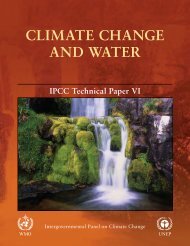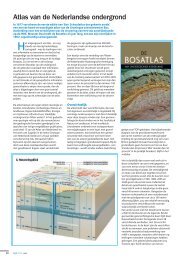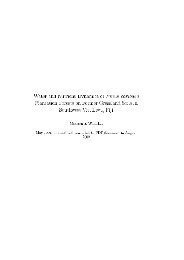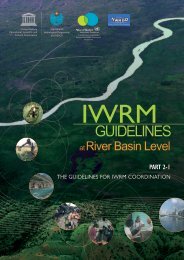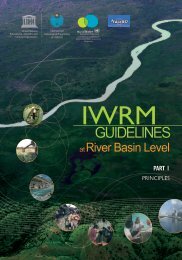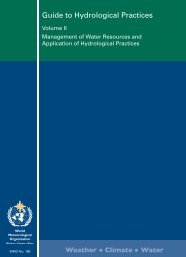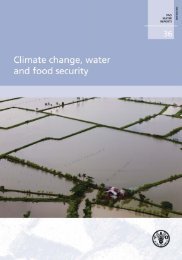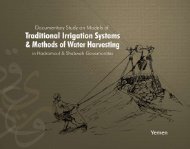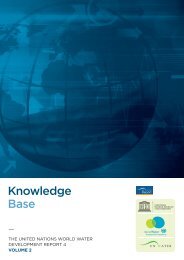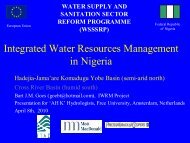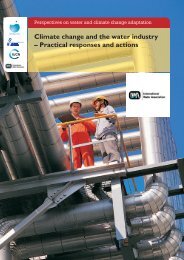Non-renewable groundwater resources: a ... - unesdoc - Unesco
Non-renewable groundwater resources: a ... - unesdoc - Unesco
Non-renewable groundwater resources: a ... - unesdoc - Unesco
- No tags were found...
You also want an ePaper? Increase the reach of your titles
YUMPU automatically turns print PDFs into web optimized ePapers that Google loves.
NON-RENEWABLE GROUNDWATER RESOURCESFigure 1Hydrogeological sketch section showing distribution of fresh <strong>groundwater</strong>in the Tilomonte area of Salar de Atacama90The objective of an Early Alert Plan is to forecast, follow-up, evaluate and verify theexpected effects or impacts at the moment of granting the <strong>groundwater</strong> use rights. It involvesthe use of indicators permitting the timely evaluation of effects or impacts and ways ofmanaging <strong>groundwater</strong> exploitation so as not to exceed specified maximum damage indicatorvalues. It involves assessing aquifer characteristics, determining acceptable impacts, developingand applying simulation models, establishing a monitoring plan, and evaluating and adaptingthe Plan as desired.Determining the physical and hydrological properties of the aquifer or aquifers includingcurrent <strong>groundwater</strong> levels and their seasonal and annual variability, and the identification of allthe areas considered sensitive or vulnerable to the <strong>groundwater</strong> extraction (such as wetlands,lakes, salt-marshes), is critical to the establishment of the Plan. For this characterization satelliteimages, showing seasonal characteristics over at least several years before starting the <strong>groundwater</strong>extraction, and mathematical <strong>groundwater</strong> simulation models, designed to predict of thebehavior of the aquifer system and its impacted land surface areas under alternative extractionpolicies, can be very helpful.The Early Alert Plan for the intensive exploitation of aquifers requires a complete monitoringprogram aimed at improving the knowledge about the aquifer’s system and it’s associatedmedium. This improved knowledge can lead to more control of the aquifer system under anadaptive policy of <strong>groundwater</strong> exploitation.Adaptive aquifer management requires monitoring of all variables considered important forsustainable management. This includes information about the changes in hydrological andhydrogeological conditions, and about changes in environmentally sensible areas, that are takingplace under a given plan, policy or practice of aquifer exploitation.Finally, actions oriented to avoid undesirable impacts derived from the exploitation of<strong>groundwater</strong> are to be identified. If necessary the operation of the system may have to be





